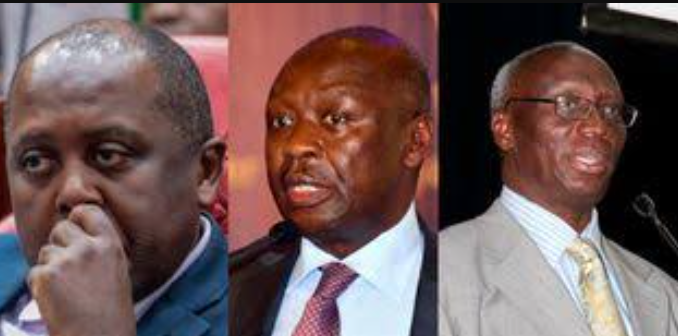A parliamentary committee has escalated its investigation into Kenya’s energy sector, urging the Ethics and Anti-Corruption Commission (EACC) to investigate former Energy Permanent Secretaries Patrick Nyoike and Joseph Njoroge.
The duo, alongside former Kenya Power CEO Joseph Kibati, is accused of approving exploitative power purchasing agreements (PPAs) with Lake Turkana Wind Power (LTWP), which have burdened taxpayers and highlighted systemic corruption within the sector.
The controversial LTWP deal has become a symbol of financial mismanagement.
Despite being hailed as a renewable energy milestone, the project’s operational inefficiencies have cost Kenyan taxpayers billions.
The core issue stems from a 2010 PPA signed before LTWP even acquired a license. Under this agreement, LTWP was entitled to “deemed generated energy” (DGE) payments compensation for power it could not deliver due to government delays in constructing a transmission line.
By the time the line was completed in 2018, Kenya had incurred over KSh 18 billion in penalties.
The lack of oversight and the readiness to approve such flawed agreements cast doubt on the integrity of Nyoike and Njoroge during their tenure.
LTWP overcharged Kenya by KSh 785 million, citing erroneous estimates of power generation.
This overpayment took over a year to be refunded, allegedly due to Kenya providing incorrect bank details.
The Treasury’s failure to recover the money promptly raises further concerns about the competence and integrity of those involved in managing public funds.
These scandals are not isolated. Kenya Power has been embroiled in numerous controversies, including overpayments to independent power producers, dubious procurement practices, and insider corruption.
For instance, the abrupt resignation of key officials during parliamentary probes into the LTWP payments only deepens suspicions of collusion among energy officials.
The actions of Nyoike, Njoroge, and Kibati have left a trail of financial devastation.
Their tenure saw the approval of inflated tariffs, which continue to burden Kenyan households and businesses.
Under the LTWP agreement, Kenya Power pays €9.2 per kilowatt-hour (KWh), above the market rate, with consumers bearing the brunt of these inflated costs.
Despite public outrage, little has been done to renegotiate such exploitative terms.Beyond financial losses, these agreements erode public trust in Kenya’s institutions.
The energy sector, critical to the nation’s development, has been marred by allegations of incompetence, greed, and impunity.
The reluctance of implicated officials to take accountability suggests a culture of entitlement and disregard for public welfare.
This saga highlights an urgent need for reform. Enhanced oversight, transparent procurement processes, and stricter penalties for corrupt officials are necessary to restore confidence.
The ongoing investigations by EACC must be thorough and unrelenting, holding those responsible accountable for their roles in enabling these egregious practices.
Without meaningful action, Kenya risks perpetuating a cycle of exploitation that undermines its development goals.





















Add Comment